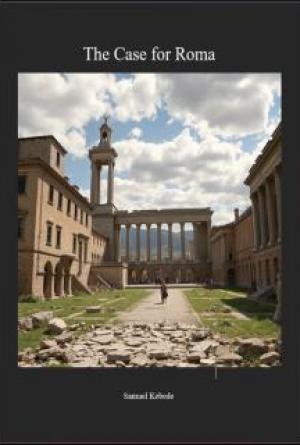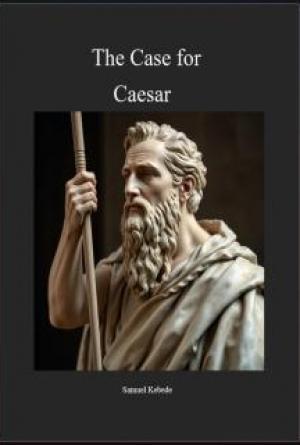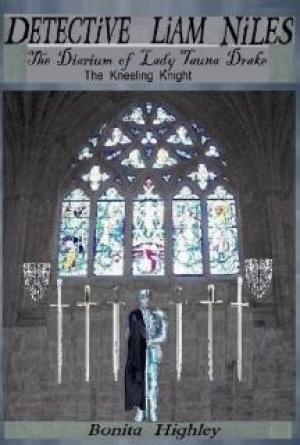___________________________________________________________
QUEEN CHARLOTTE
____________________________________________________________
By Jimmy Brook
When you feel the need to do something worthwhile, don’t hesitate.
Queen Charlotte didn’t.
It’s been a few years now since Queen Charlotte has been mentioned on these parts of the coast, but very few know the true story. Sure, many have guessed and many have just added ideas that appealed to them, thus shrouding the real story even further. If you’re a local and around at the time, you would have heard and said nought, for this may bring a heap of trouble on to someone. The district looks after its own. But as I said, very few in this area know what happened way back then.
Up in the centre of our island nation there are also just a few who were privy to the saga, and they were keeping quiet, because they had more to lose. So why now? Why am I telling the tale to you now? Well, I think as time goes on, the mind has to struggle with the details and that is where it could get lost to the world forever. I read in the Times recently a small article and in a way, it is related, so since I’ve started so I may as well continue.
I’ve spent the last few years and probably the rest of my mortal life, at Burnham on Sea, a modest town in Somerset. The cottage overlooking Bridgwater Bay and the start of the Severn River, originally belonged to my sister and when I retired from the quarry in the Brendon Hills, she asked me to stay with her. Some days I have good views of Wales across the water and some day I have none. The weather can be quite fickle. When my sister moved to a more modern cottage, I took it over. Anyway, my domestic arrangements are dull compared to those of Queen Charlotte. So I should get on with it.
The Brendon Hills in the west of the County is scenic and a drawcard for nature lovers and photographers. And on its northern edge where limestone ridges protrude above the grass, you will find the abandoned remains of the area’s only limestone quarry. Pressure from conservation groups and falling mineral prices finally spelt the death knoll about twenty years ago. I was the last quarry manager and the last employee. By then it was just a part of a large conglomerate based in London and we were an insignificant operation to be closed down. I stayed on for a few weeks as caretaker until the pen pushers came down and did a stock take and a scrap merchant came with his motor lorries and took anything worth salvaging. Then the big wire gates were locked and I walked away from 35 years of service. Tilson’s Quarry became just a memory. In its time it was productive and the limestone dug from its confines was put into hoppers and taken by the quarry’s own railway to Minehead, on the Bristol Channel. There it was stockpiled and loaded into coastal barges or cargo ships destined for the cement works or stone masons.
So, you may ask what has this to do with a lady called Queen Charlotte? Since 1924 the rail hoppers were all attached behind a diminutive steam locomotive, to be taken down to the coast, and her name was proudly displayed by two brass plates on her cab. ‘Queen Charlotte’ gave faithful service until the closure of the quarry. Everyone liked her, even the drivers and the firemen. When she came along the tidal creek on the western side of town and ran into the storage area, her clipped steam whistle brought children running and working men to a momentary pause in their labours.
She was a 2-6-2T tank locomotive built by Beyer Peacock in 1902 for the Cambrian Railways. When the Great Western took over this operation in 1923, they found that the boiler needed attention and rather than fix it, sold the engine to the only buyer, Tilson and Son, for use on their limestone operations in Somerset. The horse and wagon days had come to an end. The boiler was repaired and the rails on the ten mile journey, strengthened. They were originally laid at 2’6” gauge for the horse wagons so didn’t need adjusting. Apart from being painted black, there is nothing to add. I should mention that she was always a shiny black. There was pride in her crew.
We should now come to the players in this episode. Not many. Bernie Appleby probably started it off and he never saw it finished. Good bloke that Bernie. Left when we knew the quarry was facing a bleak future, and went to help on a fishing boat. Fell overboard and… Anyway I digress. In 1970 the Tilson family sold out to this international group and suddenly we had paperwork to fill in and send off every three months. One of those bits of paper was a stock take of all our equipment and we naturally listed the Queen Charlotte. In the column that asked for the item’s condition, it was Bernie who not being a paper work man, suggested we put “old and rusty”. This was more in the hope of getting a second engine and perhaps thumbing his nose at the ivory tower mob. And so it was each time. We never got a second engine and the Queen got “rustier” as the years rolled on. In fact, if anyone ever came down, they would find a shiny, well oiled and working machine. In the ten years that followed, we never had one visit. I tell a lie. One year, a man in a bowler hat did come down and spent two minutes at the front gate. Never even came in. Just commented that he was checking that the quarry existed, gave a laugh and went back to the Golden Cockerill for the night.
The next player could be Ted Cord. Now Ted is sort of related. My sister’s husband’s brother. We got on well because we just did. We loved machines and machinery and boats and when we met it was always pleasant and the excuse for a glass if we weren’t working. Ted worked as yard foreman at Petersons, which was an iron foundry and associated yard situated next to the wharf at Minehead. It had been there for donks and we had used them to repair equipment on and off. They also did some major work on the Queen, like when the frame cracked and that time when the boiler had to be done again. Did the boiler twice come to think of it. A short rail line was laid from just before we entered the wharf area, down along some marshy ground and into the foundry yard through a side gate to connect to their internal tracks. Wouldn’t have happened in more modern times but pre war were different times. They had an old Bo Bo diesel shunter to move equipment around and load motor lorries. The gauge was the same as ours and it was with a bit of pride we would see Queen Charlotte steam her way out of the shop and through the yard each time, like a lady who has had a new hair style or a new dress.
The last two characters in our story were a young West country lad, George Simmons, and a local man, Gerald Hollister. Both worked at the quarry up to the day we closed. In fact I employed both men. Gerald hated the name and just went by Holly from his junior school days. I should know because we grew up together. Both George and Holly worked the Queen, George usually as the fireman and offsider, and Holly as the driver. Once the people in London sent us a memo that said he had to be qualified to drive. He learnt to handle Queen Charlotte on the job till he knew it better than itself. Often he would put his ear to the old lady’s side and listen. A sort of rapport that each knew what each was happening. I wrote back and said he was a qualified engine ear. They obviously thought I couldn’t spell and never raised the matter again.
With George, it was the movement that motivated him. That opportunity to move though the countryside and feel the wind (and cinders) in his face. So the Queen became to him an object of affection where both needed each other to obtain what they both seeked. With Holly, it was love. The Queen was a lady and all ladies needed tender love.
Now I should stop meandering and get into the real reason I started on this. Two weeks before the end of May, the registered letter arrived from London, to tell me the board had downsized or something and Tilsons would be closed. We were not a profitable business for the 1980s. At the end of the month we would make our last shipment to Minehead wharf and the quarry was to be closed down and locked when the train returned that day. The men were to be made redundant and except for the weekly wage packet, would receive their entitlements by mail the following month. During next month a ‘delegation’ from London would visit to see what would be salvaged, and they would bring a scrap merchant for his opinion. Would I stay on as caretaker until this was all settled?
It was still a shock to all of us, including me. I mean, we weren’t thick enough to think the quarry would go on forever, but when it came it still took the wind out of our sails. Anyway we are all fairly fatalistic about life down here in Somerset and Devon, so we would just move on to something else. I found Holly with a tear or two in his eye one day as he pretended to look at gauges. Said it was soot, but I knew. And George went quiet in that last week. Everything on the locomotive was polished. As for me, it was a heavy heart that I pushed aside as I busied myself with the close down.
Then the day before, Thursday, it came to me what had to be done. Now the real story unfolds. I rang my cousin in law, Ted, at Petersons Foundry on an impulse.
Myself: “’Day Ted. Andrew here. How’s it going?”
Ted: “Fine. Must be pretty sad up there for everyone. When’s your last
shipment?”
Myself: “Tomorrow morning. Rake of eight hoppers. (Pause) I need a favour
from you.”
Ted (after a pause): “Should be able to within reason. What is it?”
Myself: “I need to borrow that old scrapped Hunslet engine for a couple of
hours on Saturday morning.”
Ted: “It’s just a pile of rusting metal. Boiler’s collapsed. You know Mr.
Montgomery {foundry manager} has promised it to some
Preservation group when they can come up with £200.”
Myself: “I know. Just want to borrow it. Can you push it out onto our siding
just outside the gate. We’ll be down about ten o’clock. It’ll be back
by midday.”
Ted: “I guess that can be done. Montgomery’s not in on Saturdays. Very
few are but I can be here. Don’t see a problem. Whatever you are
doing, I wish you luck. Anything else?”
Myself: “No thanks. Talk to you on Sunday at dinner.”
And that was that. Well not quite. I had to have my two enginemen to assist in my plan, so when they came back, I asked them could they help for an hour or two on Saturday, cleaning up the Queen and draining the boiler. They’d get overtime and they agreed. Friday was mostly stacking equipment and an easy day for the lads. The rake came back by lunch and I blew the whistle for the last time. We all washed up and headed for the ‘Black Boar’ in nearby Washford. Everyone lived around this area. I knew with some regret, that some would be moving away. To find work. The silvertails in London never offered any money for a final drink, so the stores I bought two or three weeks back were juggled a bit and we had enough for sandwiches and a couple of pints each. For years of service for many, all they got as a memento were sandwiches and beer. Didn’t seem fair. Still a gold watch wouldn’t have been appropriate I suppose.
A good afternoon if not a bit of a sad afternoon. But life has many twists and turns and we move on. Even with a hangover. Next morning would be the final chapter in Tilsons. Just a couple of loose ends to tidy up.
I arrived at the quarry about eight and lit the boiler on the Queen. It takes her a couple of hours to raise enough working steam. Then I walked around and sat in the wintry morning sun until the other two arrived. They were a bit surprised to see steam drifting out of the escape valve and the piston cases and even a bit more surprised when I said we three were taking a quick ride down to the coast to Petersons Foundry. They looked at each other and I saw the smile on Holly’s face. All he said, winding off the screw brake in the half cabin was “let’s do it.”
We made it in half the time without loaded hoppers and an anxious moment followed when the points to the foundry wouldn’t move. They hadn’t been used for years. But with two of us and a hammer, they moved. Weeds and rubbish were on the small spur but we managed and there were the remains of the Hunslet just outside the side gate. Ted was inside and gave a wave before boarding his Bo Bo shunter and disappearing into the depths of the foundry. My instructions were simple. Use the piece of chain I had placed in the tender to secure the Hunslet and tow her as quickly as we could back to the quarry. Whether they guessed, they didn’t say. Queen Charlotte went up the hills as though she was on a mission. And indeed she was. Luckily the old engine we were pulling didn’t derail. That would have been a nuisance.
Once in the quarry, we detached her over the ash pit and ran the Queen around her. Then I dived into the small hut we kept equipment and hammers in and emerged with a gallon tin of black paint and a white wash brush which I presented to young George and told him he had fifteen minutes to tart up the relic. “Holly” I said, “wire that metal scoop to the top of the boiler where the old funnel used to be.” He caught on fast, but Simmons was shaking his head. However not for long. He knew something was afoot so he just joined in. As for me, I retrieved another item from the shed I had placed there this morning. A nice long board, beautifully painted and bearing the lettering ‘Queen Charlotte’. This I started affixing across the smoke box door with some wire. Then the penny dropped for both of them.
George stopped painting and said “You’ll never pull it off.” To which Holly replied “Oh yes we will. Five minutes to get that paint on and splash some on my ‘new’ funnel.” When we finished the old loco had just a glimmer of her former days. Not as pristine as she was when she emerged back in 1922 into the world. In fact she looked a wreck, but a nice wreck.
We threw some coal into her bunker and on the cab floor then boarding the real Queen, moved out the rail gate, pausing long enough for me to padlock it behind us. Then it was just drifting down the grade all the way back to the foundry gate. Ted was there waiting.
“Returning your Hunslet as promised. Suggest we steam her in to the back corner somewhere and rake out the firebox; drain the boiler and cover her with some tarpaulins before any prying eyes see us.”
He looked and started to say something about this was not the Hunslet, then with a smile of recognition, threw up his hands. “This is close to the wind and makes me see you in a new light. Let’s hope it works.”
“So do I,’ I said and we followed the Bo Bo inside. It took us about half an hour to make the Queen less visible and Ted would throw on another tarp later when the firebox was cool. From my bag I offered him a bottle of Johnny Walker Red Label but he declined saying just bring it tomorrow when I went to my sister’s place for dinner. He was coming also. Then we walked out to the road way and waited. My sister arrived in that black Opal she drove and we all piled in and headed back to the quarry to pick up our cars. There was also a bottle for each of my grimy and paint splattered helpers, which they accepted. I was glad they did. They deserved it.
That was my story I wanted to tell you. Reckless? Silly? Illegal? Maybe, but who cares. It was worth it to save the Queen and it all turned out right in the end. Mind you I was on tender hooks for weeks. Waiting for that phone call or a police car pulling up, but note happened. The assessors came and found a locomotive ‘rusty and old’ and probably wondered how this kept running. Then they moved on to other items and it was forgotten. The salvage man came and made an offer and never queried the condition of the locomotive. Whether he had planned to sell a working engine I will never know, but he must have accepted what he saw and took it. I finally received my final pay and I said goodbye to the quarry. Now it is history.
The article I mentioned was only small. It just said that such and such International had been taken over by some even bigger multinational and that many of its head office staff would be made redundant.
Only one final thing you might be asking. What about the Queen? Well Ted tells me it sat quietly in the back of the foundry yard for six months all covered up and Mr. Montgomery none the wiser. Then one day he announces to Ted that the Preservation group were coming with a low loader to take the junk away. He reduced the price to £50. He was away the day they came. Ted did have a word in their little pink ears when they came and it was hoisted; secured and covered in record time. Somewhere in the green pasture
country up north, Queen Charlotte is chugging away, bringing pleasure to many. Thanks for listening to my story.
Jimmy Brook







